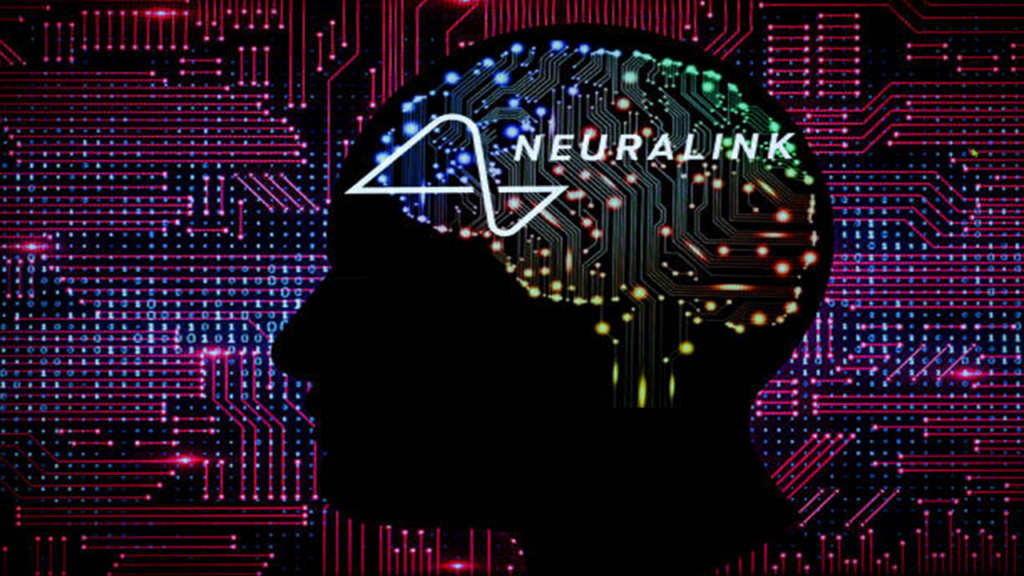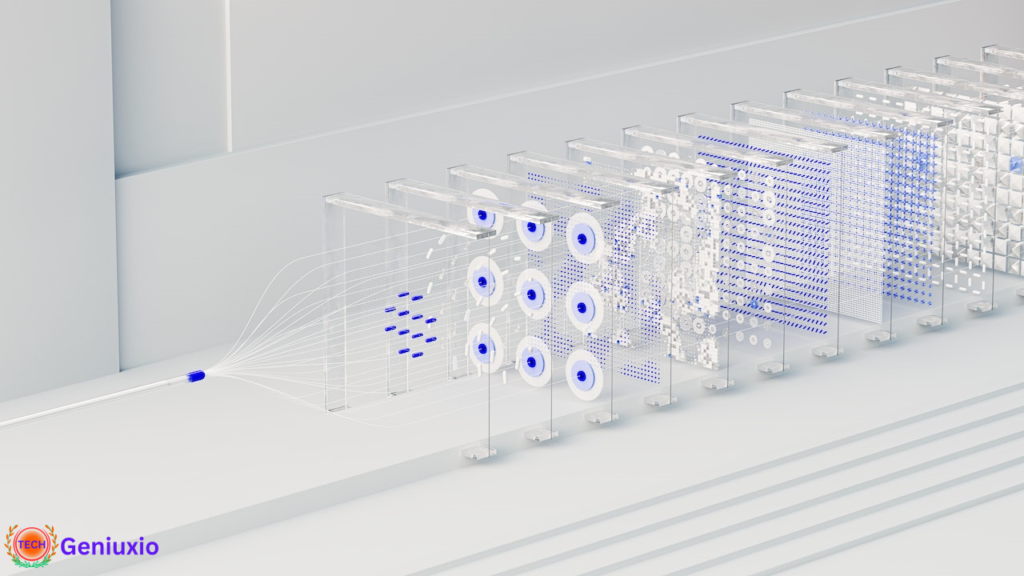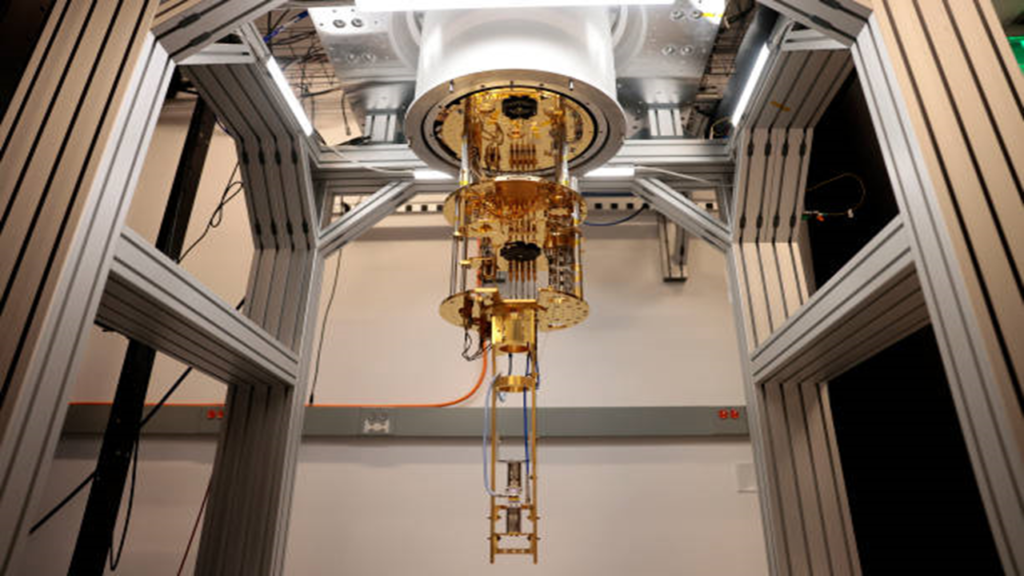In today’s digital age, Artificial Intelligence (AI) solutions are more than just buzzwords—they’re revolutionizing industries, reshaping businesses, and redefining the way we interact with technology. As AI continues to evolve at an unprecedented pace, understanding its capabilities and potential becomes crucial. In this comprehensive guide, we’ll delve deep into the world of AI, exploring its definition, key features, industry applications, and the top AI solution providers leading the charge in 2023. Whether you’re a business leader, tech enthusiast, or just curious about the future of AI, this article promises to be an enlightening journey through the dynamic landscape of AI solutions.
Definition and Types of AI Solutions
Artificial Intelligence (AI) is a branch of computer science that aims to create machines capable of mimicking human intelligence. This doesn’t mean creating robots that think and act exactly like humans, but rather systems that can perform tasks requiring human-like intelligence, such as understanding language, recognizing patterns, solving problems, and making decisions.
When we talk about Artificial Intelligence solutions, we refer to the applications and tools developed using AI to solve specific problems or perform particular tasks in various industries.
Types of Artificial Intelligence Solutions:
[A] Machine Learning (ML):
- A subset of AI, ML allows computers to learn from data. Instead of being explicitly programmed to perform a task, an ML system uses algorithms and statistical models to analyze and draw insights from data, improving its performance over time.
- Example Use Case: Predicting stock market trends based on historical data.
Table of Contents

(Swiss startup OrphAnalytics staff poses with a laptop using the text analysis software)
Artificial Intelligence Solutions:
[B] Deep Learning:
- A type of machine learning, deep learning uses neural networks with many layers (hence “deep”) to analyze various factors of data. It’s especially useful for tasks like image and speech recognition.
- Example Use Case: Identifying objects within images or translating voice commands into actions.

[C] Natural Language Processing (NLP):
- NLP enables machines to understand, interpret, and generate human language. This includes both written and spoken language.
- Example Use Case: Chatbots that can interact with users in natural language or software that can analyze customer reviews for sentiment.
[D] Robotic Process Automation (RPA):
- RPA involves using AI to automate repetitive tasks that were previously performed by humans. It’s like macro automation but more advanced, with the ability to adapt to changing circumstances.
- Example Use Case: Automating data entry tasks or processing standardized transactions.
[E] Cognitive Computing:
- This type of AI solution mimics the human brain’s thought processes to solve complex problems. It involves self-learning through data mining, pattern recognition, and NLP.
- Example Use Case: Personalized content recommendations on streaming platforms based on user behavior and preferences.
Artificial Intelligence solutions are reshaping the way we live and work. By understanding the different types of AI solutions available, businesses and individuals can harness their power to drive innovation and efficiency.
Artificial Intelligence Solutions: Key Features to Look for in an AI Solution
Selecting the right Artificial Intelligence solution for your needs can be a daunting task, given the plethora of options available. However, understanding the key features to look for can simplify the decision-making process. Here are some essential features to consider:
[A] Scalability:
- The AI solution should be able to handle an increase in workload or demand efficiently. As your business grows, the AI system should adapt without compromising performance.
- Ensures long-term viability and supports business growth.

(Google DeepMind)
[B] Ease of Integration:
- The AI system should seamlessly integrate with existing software, tools, and platforms without requiring extensive modifications.
- Reduces implementation time and ensures compatibility with current systems.
- Key Features to Look for in an Artificial Intelligence Solution
- Selecting the right Artificial Intelligence solution for your needs can be a daunting task, given the plethora of options available. However, understanding the key features to look for can simplify the decision-making process. Here are some essential features to consider:
- Scalability:
- The AI solution should be able to handle an increase in workload or demand efficiently. As your business grows, the AI system should adapt without compromising performance.
- Ensures long-term viability and supports business growth.
- Ease of Integration:
- Definition: The AI system should seamlessly integrate with existing software, tools, and platforms without requiring extensive modifications.
- Importance: Reduces implementation time and ensures compatibility with current systems.
- Customizability:
- The ability to tailor the AI solution to meet specific business needs, allowing for adjustments in algorithms, interfaces, and functionalities.
- Ensures the AI solution aligns with unique business requirements and objectives.
- Real-time Processing Capabilities:
- The AI system should be capable of analyzing and processing data in real-time, delivering instant insights or actions.
- Enables timely decision-making and enhances user experience, especially in applications like chatbots or real-time analytics.
- Security and Privacy Features:
- Given the sensitive nature of data AI solutions often handle, robust security measures are crucial. This includes encryption, access controls, and compliance with data protection regulations.
- Protects user data and ensures regulatory compliance, building trust with users.
- When evaluating an Artificial Intelligence solution, it’s essential to consider its scalability, ease of integration, customizability, real-time processing capabilities, and security features. By prioritizing these features, you can ensure that the AI solution you choose will effectively serve your needs and offer a competitive edge.
[C] Customizability:
- The ability to tailor the AI solution to meet specific business needs, allowing for adjustments in algorithms, interfaces, and functionalities.
- Ensures the AI solution aligns with unique business requirements and objectives.
[D] Real-time Processing Capabilities:
- The AI system should be capable of analyzing and processing data in real-time, delivering instant insights or actions.
- Enables timely decision-making and enhances user experience, especially in applications like chatbots or real-time analytics.
[E] Security and Privacy Features:
- Given the sensitive nature of data AI solutions often handle, robust security measures are crucial. This includes encryption, access controls, and compliance with data protection regulations.
- Protects user data and ensures regulatory compliance, building trust with users.
Artificial Intelligence Solutions:
When evaluating an Artificial Intelligence solution, it’s essential to consider its scalability, ease of integration, customizability, real-time processing capabilities, and security features. By prioritizing these features, you can ensure that the AI solution you choose will effectively serve your needs and offer a competitive edge.

Industry Applications
Industry Applications of Artificial Intelligence Solutions:
Artificial Intelligence solutions are no longer confined to the realms of science fiction. Today, they are making significant inroads across various industries, revolutionizing processes, enhancing efficiency, and creating new opportunities. Let’s delve into some of the prominent industries where AI solutions are making a notable impact:
- Healthcare:
- Application: AI assists in diagnostic processes, predictive analytics, patient management, and drug discovery.
- Impact: Enhanced patient care, reduced costs, and faster drug development.
- Finance:
- AI powers algorithmic trading, personal finance, fraud detection, and robo-advisors.
- Improved financial decision-making, enhanced security, and personalized banking experiences.
- Retail:
- AI solutions drive recommendation systems, inventory management, and customer service chatbots.
- Personalized shopping experiences, optimized inventory levels, and improved customer service.
- Manufacturing:
- AI aids in predictive maintenance, quality control, and supply chain optimization.
- Reduced downtime, enhanced product quality, and streamlined supply chains.
- Transportation:
- AI powers autonomous vehicles, route optimization, and traffic management systems.
- Safer roads, reduced traffic congestion, and optimized transportation routes.
- Entertainment:
- AI drives content recommendations, game design, and music composition.
- Personalized entertainment experiences and innovative content creation.
The applications of Artificial Intelligence solutions across industries are vast and transformative. As technology continues to evolve, it’s evident that AI will play an even more significant role in shaping the future of these sectors, offering unprecedented advantages and opportunities.
Benefits of Implementing AI Solutions
As we see in today’s world rapidly evolving technological landscape, Artificial Intelligence solutions stand out as a transformative force. Implementing AI in various sectors and operations brings a plethora of benefits. Here are some of the most significant advantages:

- Enhanced Efficiency:
- Description: AI systems can process vast amounts of data at incredible speeds, automating tasks and making operations more efficient.
- Impact: Reduced operational costs and faster decision-making.
- Improved Accuracy:
- AI algorithms, especially in areas like data analysis, reduce the margin of error, ensuring more accurate outcomes.
- Higher quality results and reduced chances of costly mistakes.
- Personalized Experiences:
- AI solutions can analyze individual preferences and behaviors, tailoring services and products to meet specific needs.
- Enhanced customer satisfaction and increased loyalty.
- Data-Driven Insights:
- AI can sift through vast datasets, identifying patterns and trends that might be overlooked by human analysts.
- Informed business strategies and anticipation of market shifts.
- Cost Savings:
- By automating repetitive tasks and optimizing processes, AI solutions can lead to significant cost reductions.
- Higher profitability and resource allocation to more critical areas.
- Innovative Solutions:
- AI fosters innovation by providing tools that can design, brainstorm, and even create content, opening doors to new possibilities.
- Diversified product offerings and staying ahead of competitors.
The benefits of implementing Artificial Intelligence solutions are multifaceted, ranging from operational enhancements to groundbreaking innovations. As AI continues to mature, its positive impact on businesses and society at large will only grow.
Challenges and Considerations
While Artificial Intelligence solutions offer a myriad of benefits, their implementation is not without challenges. It’s essential to be aware of these hurdles and considerations to ensure a successful AI integration. Here are some of the key challenges and aspects to ponder:
- Data Privacy and Security:
- AI systems often require vast amounts of data, raising concerns about data privacy and potential breaches.
- Ensuring robust data encryption and adhering to data protection regulations.
- High Initial Costs:
- Setting up AI solutions can be capital-intensive, especially for small and medium enterprises.
- Evaluating the long-term ROI against the initial investment.
- Integration Challenges:
- Integrating AI solutions with existing systems can be complex, requiring significant time and resources.
- Opting for AI platforms that offer seamless integration capabilities.
- Skill Gap:
- There’s a shortage of skilled professionals adept at AI technologies, making hiring a challenge.
- Investing in training existing staff or partnering with specialized AI firms.
- Ethical Concerns:
- AI decisions, especially in sensitive areas like healthcare or finance, can raise ethical dilemmas.
- Establishing clear ethical guidelines and ensuring transparency in AI decision-making processes.
- Dependency and Over-reliance:
- Over-dependence on AI solutions can lead to reduced human intervention and oversight.
- Maintaining a balance between automation and human judgment.
while we are seeing and know that the promise of Artificial Intelligence solutions is undeniable, it’s crucial to approach their implementation with a clear understanding of the challenges and considerations involved. By addressing these proactively, organizations can harness the full potential of AI while mitigating potential risks.

Top AI Solution Providers
Top AI Solution Providers in 2023
The realm of Artificial Intelligence (AI) has seen a surge in innovation, with numerous companies leading the charge. As we step into 2023, several AI solution providers have distinguished themselves as industry frontrunners. Here’s a look at some of the top AI solution providers this year:
- Viz.ai
- A leading AI company specializing in healthcare solutions, Viz.ai leverages AI to enhance patient outcomes.
- Nuro
- Nuro focuses on autonomous delivery vehicles, revolutionizing the way goods are transported.
- Uptake
- Uptake offers AI-driven solutions to optimize performance, reduce failures, and enhance safety across industries.
- Dataminr
- Dataminr utilizes AI to detect real-time events, providing actionable insights from public data.
- Adarga
- Adarga delivers AI-powered analytics, enabling organizations to analyze vast datasets efficiently.
- Cropin
- An agritech leader, Cropin leverages AI to enhance agricultural practices and yield predictions.
- Dataiku
- Dataiku offers an enterprise AI and machine learning platform, facilitating data-driven decision-making.
- OpenAI
- Renowned for its cutting-edge research, OpenAI aims to ensure that artificial general intelligence benefits all of humanity.
- Boston Dynamics
- Boston Dynamics is at the forefront of robotics, with AI-powered robots capable of remarkable feats.
- DeepMind
- An Alphabet subsidiary, DeepMind has made significant strides in AI research, particularly in deep learning.
In 2023 has seen the rise of several AI solution providers that are pushing the boundaries of what’s possible with AI. From healthcare to agriculture, these companies are harnessing the power of AI to drive innovation and create value.

Future Trends in AI Solutions
The rapid evolution of Artificial Intelligence (AI) has given rise to numerous innovations and breakthroughs. As we look ahead, several trends are poised to shape the future landscape of AI solutions. Here are some of the most anticipated trends:
- Quantum Computing and AI
- Description: Quantum computers, with their ability to process vast amounts of data simultaneously, will supercharge AI algorithms, leading to faster and more accurate predictions.
- Image Suggestion: A visual representation of a quantum computer or a quantum bit (qubit).
- AI-Powered Automation
- Automation will extend beyond routine tasks. With advanced AI solutions, complex processes like decision-making and problem-solving will also be automated.
- Explainable AI (XAI)
- As AI systems become more intricate, there’s a growing need for transparency. XAI aims to make AI decisions understandable to humans.
- AI in Healthcare
- AI solutions will revolutionize healthcare, from personalized treatments to early disease detection using predictive analytics.
- Neurosymbolic AI
- Combining neural networks with symbolic reasoning, neurosymbolic AI will bridge the gap between deep learning and human-like reasoning.
- AI Ethics and Regulations
- As AI becomes more integrated into daily life, ethical considerations and regulations will play a pivotal role in ensuring AI solutions are used responsibly.
- Edge AI
- Moving AI processing from centralized servers to local devices (like smartphones), Edge AI will enable real-time processing without the need for internet connectivity.
- Generative AI
- Generative AI models, like GANs (Generative Adversarial Networks), will be able to create new content, from art to music, that’s indistinguishable from human-created content.
The future of AI solutions is brimming with potential. These trends highlight the transformative power of AI and its potential to reshape industries, societies, and daily life.
The realm of Artificial Intelligence is not just a fleeting trend; it’s a transformative force reshaping our world. From the intricacies of quantum computing to the ethical considerations surrounding AI, the landscape is vast and ever-evolving. As we’ve explored in this article, AI solutions are at the forefront of technological innovation, driving change across industries and influencing our daily lives. The future beckons with promises of even more groundbreaking advancements. As we stand on the cusp of this AI-driven era, it’s imperative for businesses, policymakers, and individuals alike to stay informed and embrace the myriad opportunities that AI presents. The next chapter of AI’s journey is just beginning, and it promises to be an exhilarating ride.
[cnn.com]





